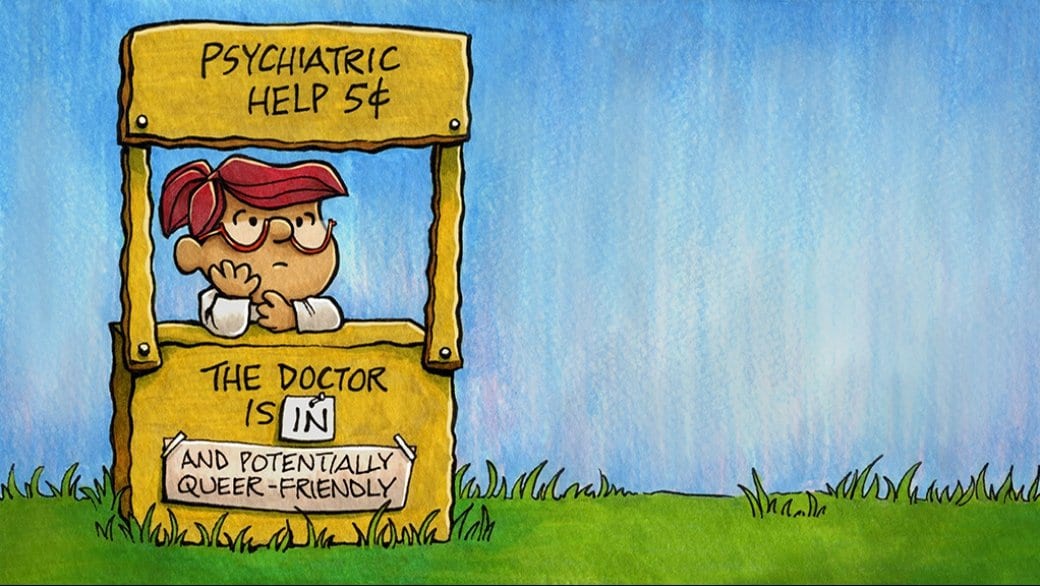Bigots and charlatans pose too great a danger to queer mental health patients for psychotherapy in BC to go on unregulated, practitioners say.
Currently, anyone can claim to be a professional mental health counsellor without presenting, or possessing, any skills or qualifications.
“Psychotherapy counselling has a long history of traditional training that is heteronormative at best and homophobic at worst,” says Pega Ren, a clinical counsellor in Nelson, BC (and Daily Xtra’s retired “Ask the Expert” columnist).
As part of her counselling practice, Ren, who spoke with Xtra by phone, says she works with queer patients who require remedial therapy after inadequately trained therapists cause harm.
She remembers one client who came to her “quite broken” after being told they could just stop cross-dressing if they really wanted to. She fears what they might have done if they had been left with that message.
“We have people struggling with counsellors who are giving them the message that they’re sick or wrong or broken and that they can be fixed by willpower and self-hatred,” she says.
When someone is struggling and seeking help, Ren says, they need competent help, not further harm caused by an unqualified therapist.
A voluntary umbrella group of concerned therapists’ associations is now urging the provincial government to regulate the field of psychotherapy.
The Federation of Associations for Counselling Therapists in BC (FACT BC) is calling on practitioners and the public to write their MLAs.
FACT BC wants to help the government set up competency evaluation, a process for registering as a professional, quality assurance, and complaint resolution.
The initiative would be funded entirely by its members, says chair Glen Grigg.
FACT BC is funded by practitioners and advocates for statutory regulation under the BC Health Professions Act, Grigg tells Daily Xtra by email.
Grigg says he hopes enough people will write their MLAs to get the issue into platforms for the 2017 provincial election.
Vancouver-West End’s gay MLA says he has discussed the risks of unregulated counselling with practitioners, but politicians need to hear from the public before taking action.
“There may be an assumption that it already is regulated, that for something this important there would be a requirement for practitioners to sign a code of ethics,” Spencer Chandra Herbert suggests.
Chandra Herbert says part of the problem may be the privacy with which people guard their mental health.
“You’re at some of your most vulnerable moments when you go out and seek help,” he says.
“You would never want to be in a situation where you reach out for help and find a homophobic counsellor, and be unable to say they shouldn’t be practicing because they are giving hateful advice,” he says.
“Right now, you can still do that and call yourself a counsellor,” he says.
Only Ontario, Quebec and Nova Scotia have full counselling regulation, according to the Canadian Counselling and Psychotherapy Association website.

 Why you can trust Xtra
Why you can trust Xtra


